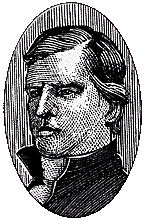Elijah Craig facts for kids
Elijah Craig (born November 15, 1738 – died May 18, 1808) was an American Baptist preacher. He also became a teacher and a successful businessman in the area of Virginia that later became the state of Kentucky. Some people have said he invented bourbon whiskey, but this claim is not fully proven.
Contents
Who Was Elijah Craig?
Early Life and Faith
Elijah Craig was born in Orange County, Virginia, in 1738. He was the fifth child of Polly Hawkins and Taliaferro Craig Sr. In 1764, he became a Baptist and soon started holding church meetings in his tobacco barn. His older brother, Lewis, and younger brother, Joseph, also became Baptist preachers.
In those days, the official church in Virginia was the Anglican Church. Preachers like Elijah Craig needed a special license to preach. He was put in jail at least twice for preaching without this license. Baptists wanted the freedom to practice their religion without government control.
Fighting for Religious Freedom
After the American Revolutionary War, Virginia adopted the idea of freedom of religion. This meant people could choose their own faith. Elijah Craig worked with important figures like Patrick Henry and James Madison. They helped make sure religious freedom was protected in Virginia and in the new United States Constitution. This protection is now part of the First Amendment.
Moving to Kentucky
The Travelling Church
In 1781, Elijah's brother, Lewis Craig, led a large group of about 600 people to Kentucky. This group was known as "The Travelling Church." They were looking for religious freedom and new opportunities. Elijah Craig followed them a few years later.
In 1782, Elijah Craig led his own church group to Kentucky. He bought about 1,000 acres (4 square kilometers) of land. Here, he planned and started a town called Lebanon. In 1790, the town was renamed Georgetown to honor George Washington.
A Leader in Education
Elijah Craig cared a lot about education. In 1787, he started the first classical school in Kentucky. This school taught subjects like Latin and Greek languages. He later founded the Rittenhouse Academy in 1798.
Craig also gave land for Georgetown College. This was the first Baptist college founded west of the Allegheny Mountains. The college is still open today.
A Busy Businessman
Elijah Craig was also a very active businessman. He built Kentucky's first fulling mill (for making cloth). He also built the first paper mill, the first rope factory, and the first lumber and gristmill in Georgetown. He even helped start the Georgetown Fire Department and served as its Fire Chief.
The Distillery and Bourbon Claim
Around 1789, Elijah Craig started a distillery. This is where he made whiskey. Some people say he was the first to age whiskey in barrels that were burned (charred) on the inside. This process gives bourbon its brownish color and special taste.
However, historians are not sure if Elijah Craig truly invented bourbon. Many other farmers in the area were also making corn-based whiskies around the same time. There is no clear proof that Craig's whiskey was unique or that he was the first to char barrels. The first time anyone mentioned him as the inventor of bourbon was much later, in 1874.
Later Life and Legacy
Elijah Craig continued to be successful. He owned a lot of land and ran a retail store. He passed away in Georgetown in 1808.
People remembered him for his powerful preaching. One person wrote that his voice was "sweet" and "bore all down before it." The Kentucky Gazette newspaper praised him, saying he was very useful to his community.
Today, Elijah Craig is perhaps best known because of the Elijah Craig bourbon brand. This whiskey is made by Heaven Hill Distilleries.
Images for kids
 | Aaron Henry |
 | T. R. M. Howard |
 | Jesse Jackson |



